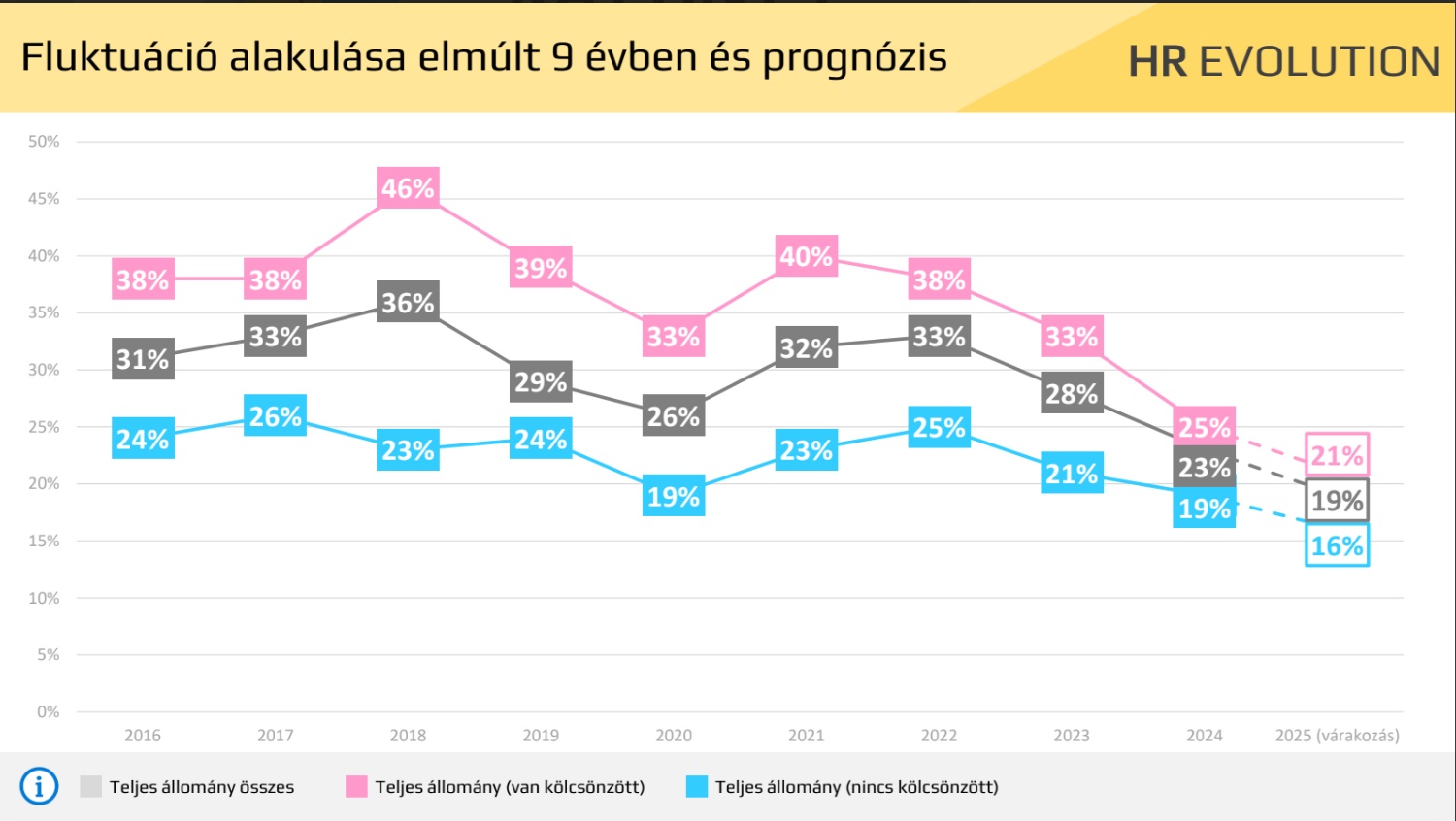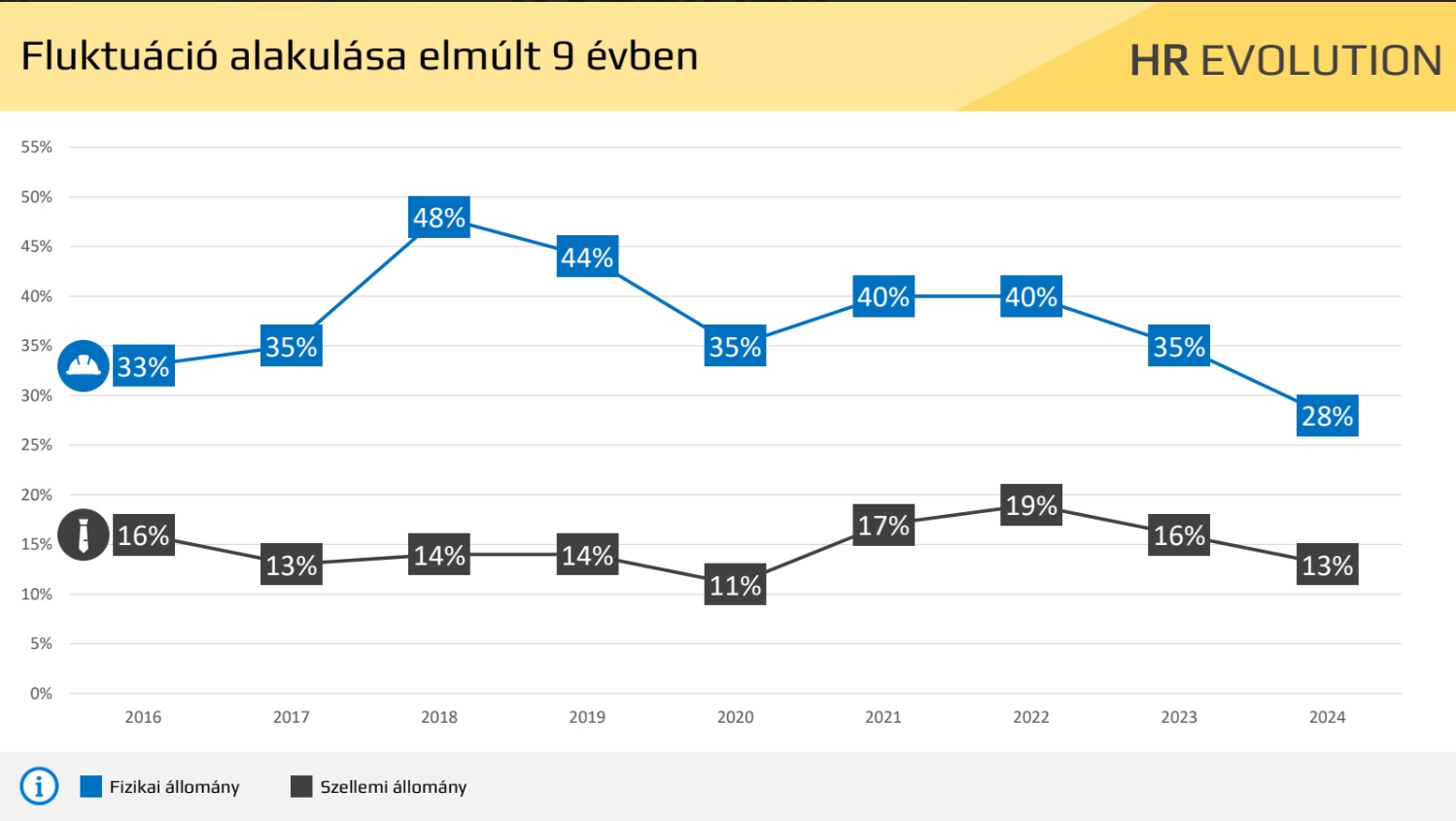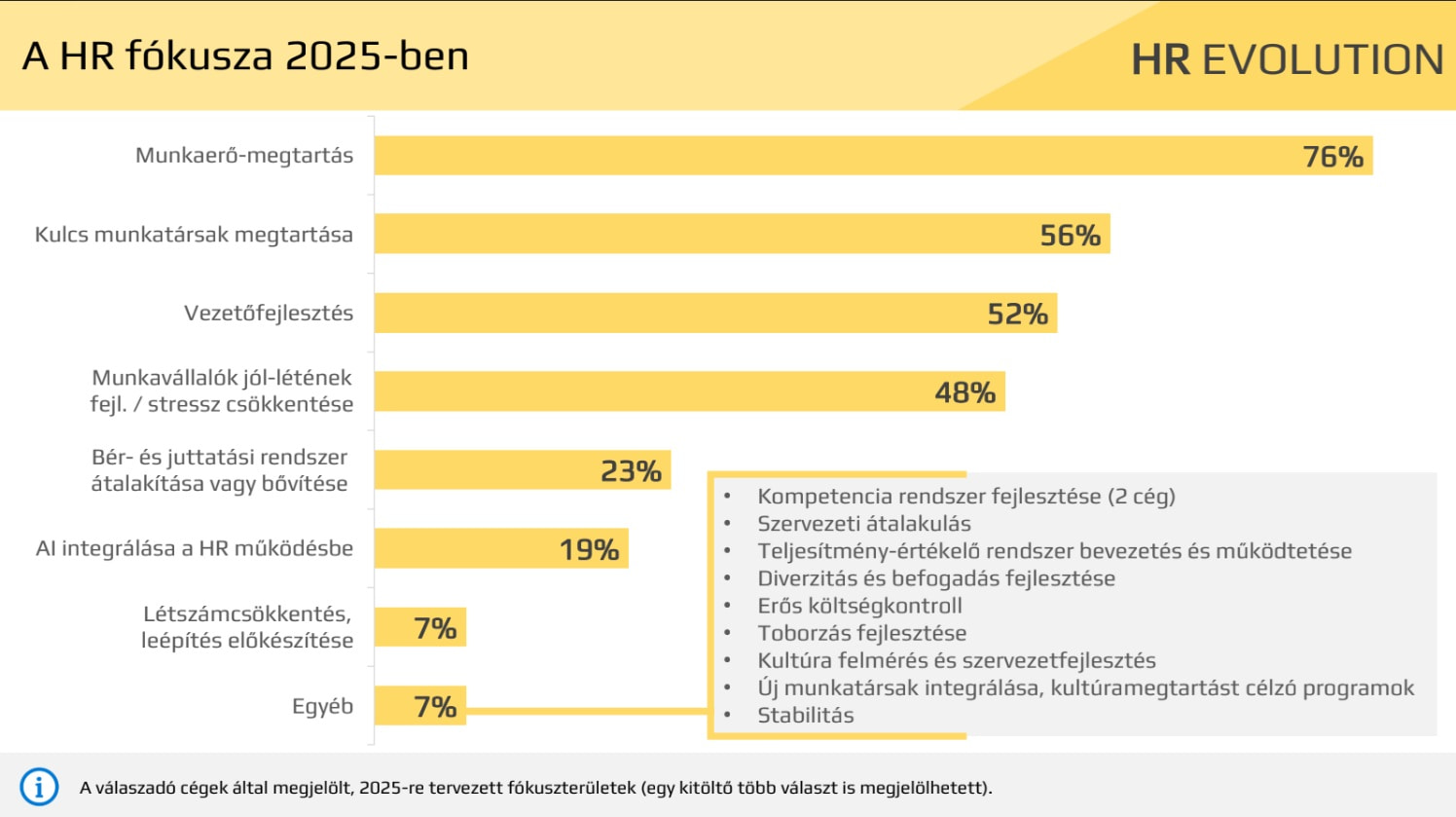What is the most common reason for dismissal and why does no one dare to say it?
The domestic labour market seems to have calmed down: employee turnover is decreasing at national level, but companies are still facing increasing challenges. The key issue this year is not how to recruit, but who and how to retain. Three out of ten new employees leave the workplace during their probationary period, according to the latest national benchmark survey of 128 companies and 104,000 employees by HR-Evolution Ltd., which also revealed the most common reasons behind turnover.

"The decline in turnover rates is not necessarily good news: in many places, they are not recruiting new staff, but simply not replacing those who leave," says Katalin Csikós-Nagy, the research leader and co-author of the professional book Retention.

Stabilisation or forced trajectory?
Turnover rates have moderated compared to recent years, falling to 23% for the total workforce (the lowest in 9 years), and most firms expect a further decline. However, the survey says this is partly due to the worsening economic environment rather than an improvement in job stability.
In the automotive industry, for example, 81% of firms are feeling the economic downturn, and this is having an impact on employment, with many places hiring freezes in place or workers leaving simply not being replaced. 23% of responding firms have made layoffs, while of those that have not, 27% have deliberately not replaced their leavers.

One in three new workers leave during their probationary period
One of the most shocking findings from the survey is that employers say three in 10 new workers leave the job during their probationary period. That means by the time someone really settles in, they're gone. In fact, there are companies where as many as 7 out of 10 new colleagues fail to settle in - either because they don't fit in or because they choose to leave quickly.
This trend has worsened in recent years. While the rate of such early exits used to be around 25%, it has now risen to over 30%.
And what might be behind this? According to another study, a quarter of workers have negative experiences in their first week that shake their confidence - often it's about a cold welcome, inhumane treatment or just a complete lack of interest. In such cases, bonding or commitment cannot even develop.
Add to this, younger generations come to the workplace with different expectations. They want attention, feedback, a meaningful work experience - and if they don't get that from the start, they're likely to move on.
The lesson is simple but serious: it's not enough to hire someone - you have to keep them from day one. And to do that, companies need to change. Not just the selection process, but the welcome, the first-week experience, and treating the new colleague as a person - not just a new "resource."
It's not the economy that's spinning right now, it's the front door. And if we don't start reinforcing it in time, there won't be anyone to walk through it.

Reason to quit: the leader - but no one says so
The reasons behind turnover continue to rank high among leadership style, work schedule and stress and burnout. But many people are afraid to say these reasons - instead citing "family reasons" or "health reasons"
"Quitting workers are often not honest because they do not feel safe. But if we knew the real reasons, we could prevent problems," says Katalin Csikós-Nagy.
The research therefore pays particular attention to the quality of exit interviews and the fact that turnover is not just about numbers, but about people and connections.
Retention is first and foremost the job of leaders - and preparing leaders for it is HR's job.
The most important HR focus for 2025, according to the survey, will be retention (76%) and retaining key people (56%). But these goals won't be met through bonus schemes or recruitment campaigns.
One of the central ideas behind the Retention book that underpins the research is that happy, satisfied, engaged employees stay - everyone else goes.

And what makes a worker happy?
The answer is simple, yet seldom realized: attention, trust, support, and meaningful work in a functioning team. In other words, we don't need a "free fruit day" - we need authentic leadership.
The lesson: it's not turnover that's the danger, it's inaction.
While the numbers now look more positive, the research warns that the real danger is when leaders sit back. Because economic pressures may mean fewer people are making the switch today, but once the market moves again, they'll only choose jobs that are good to be in.
image: freepik
